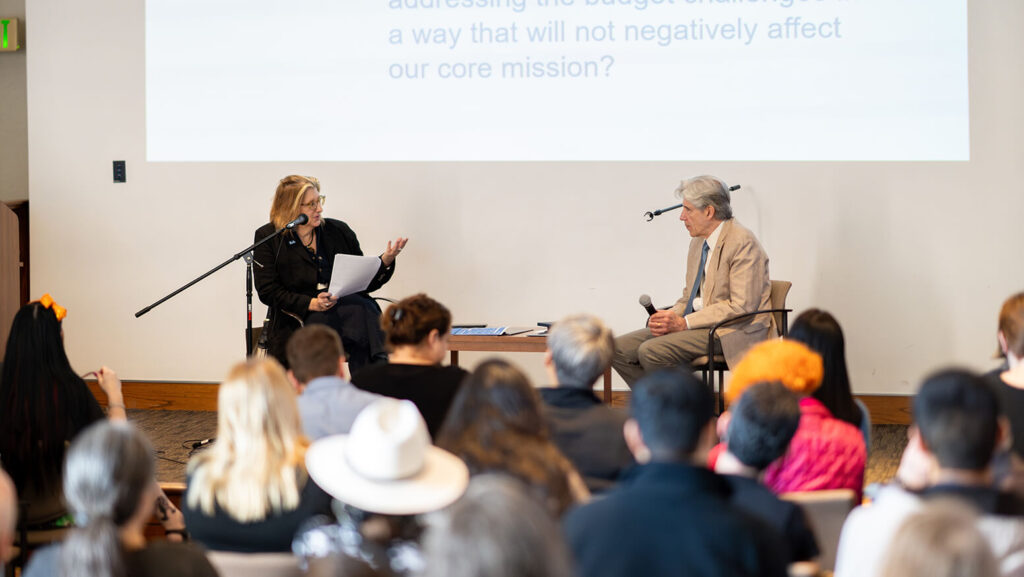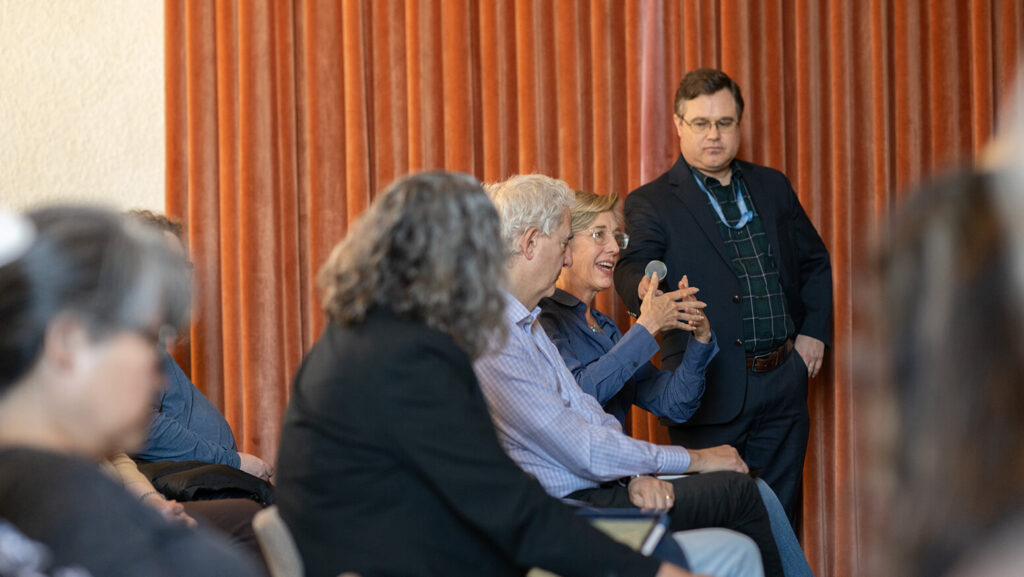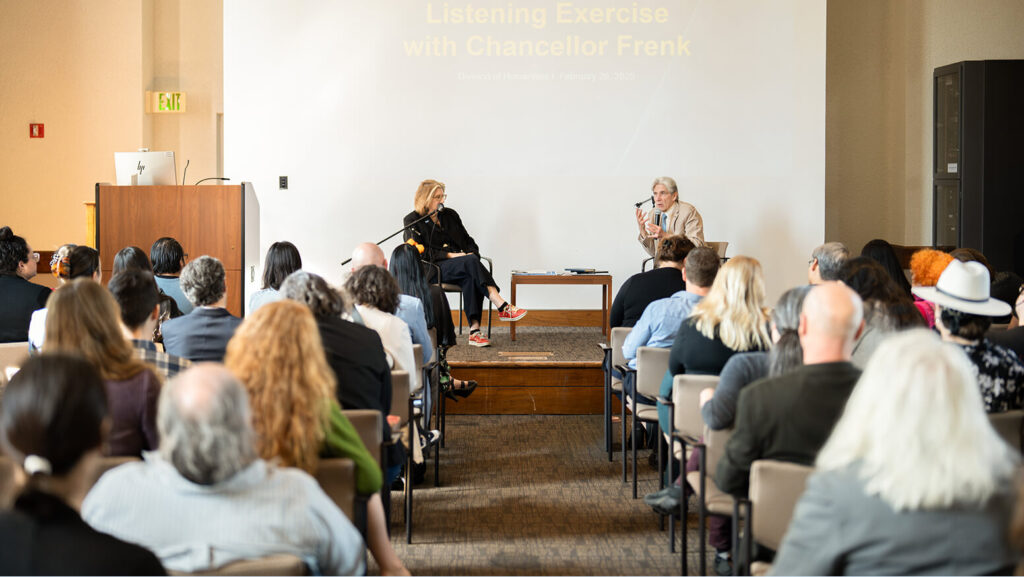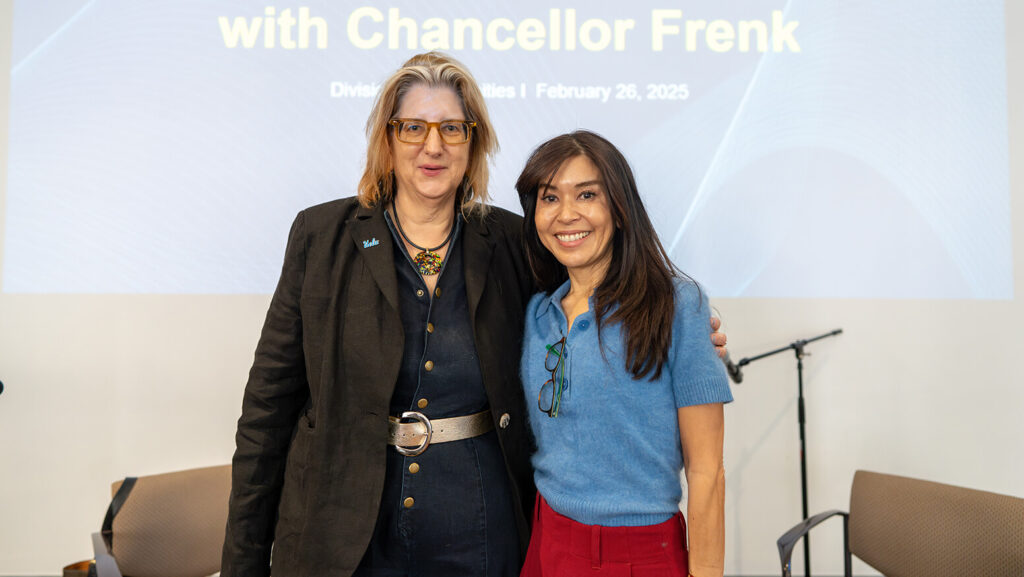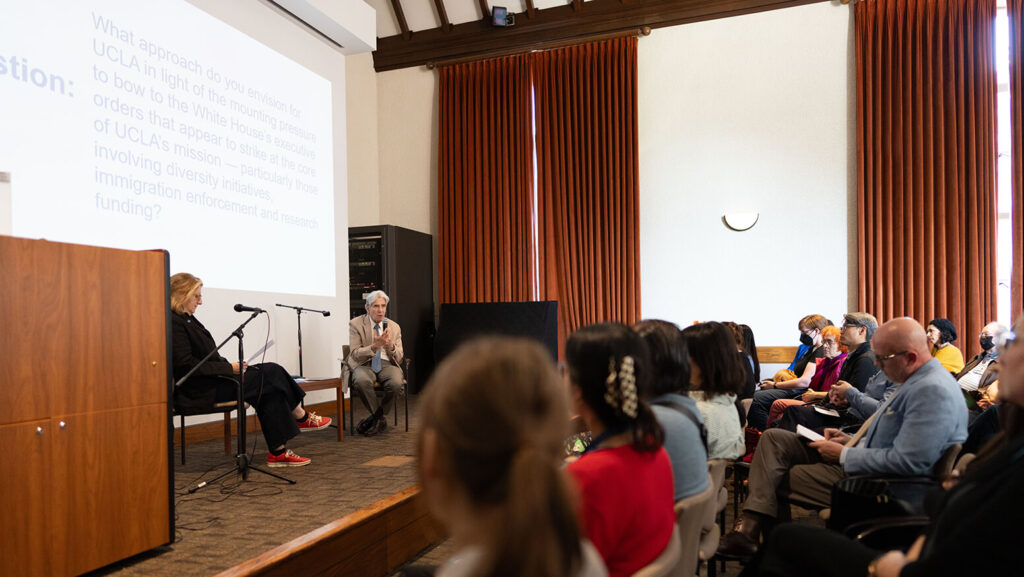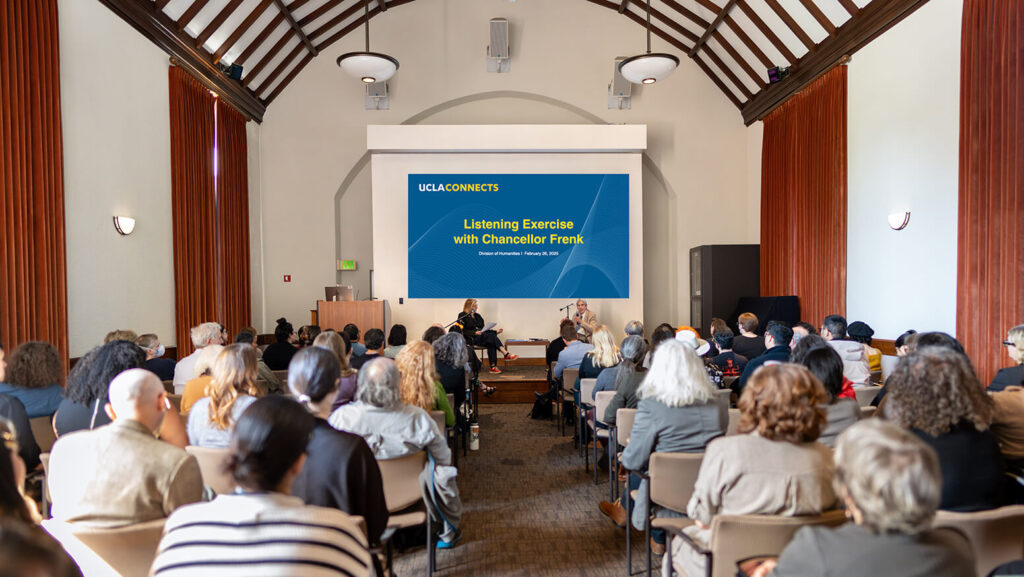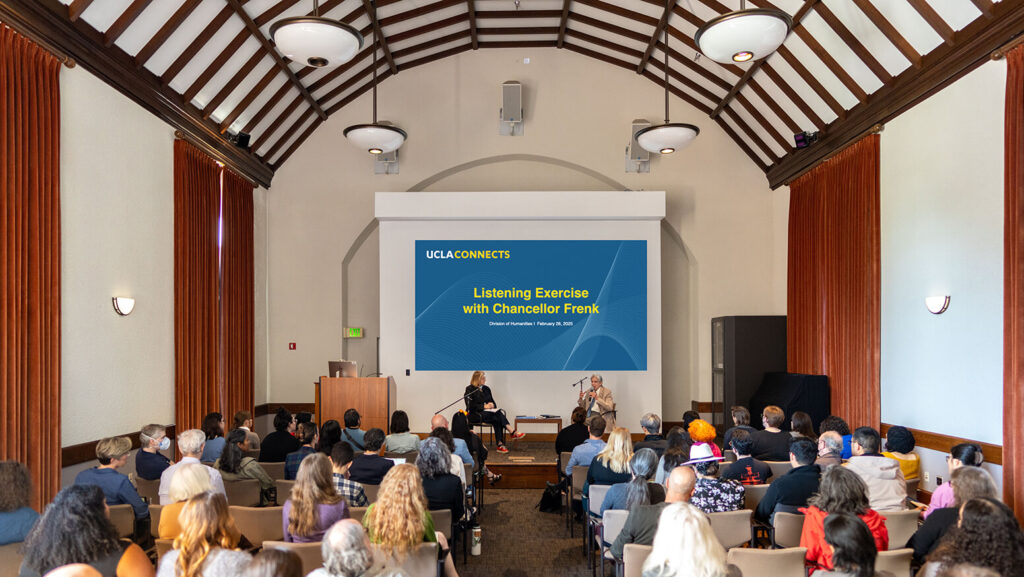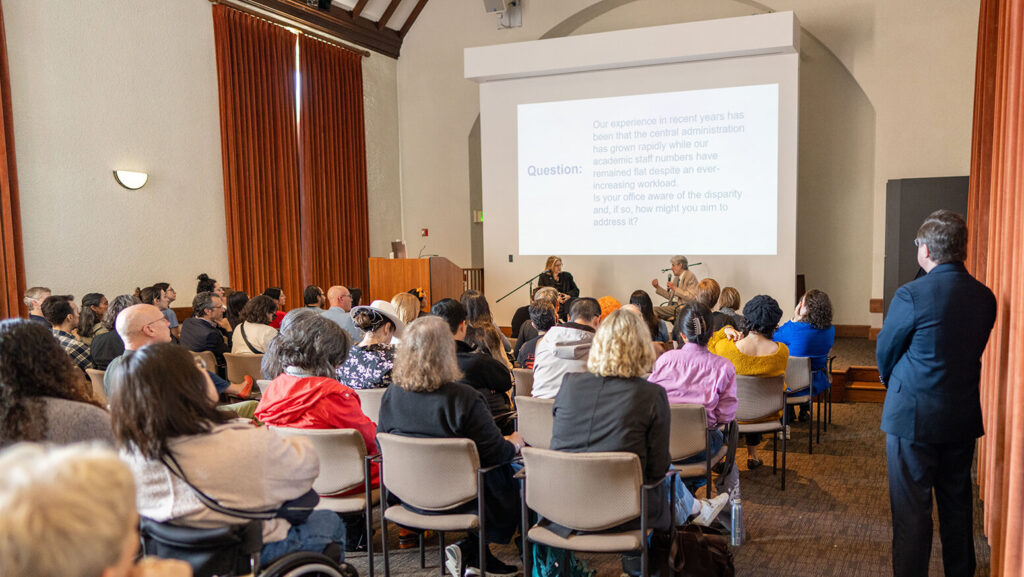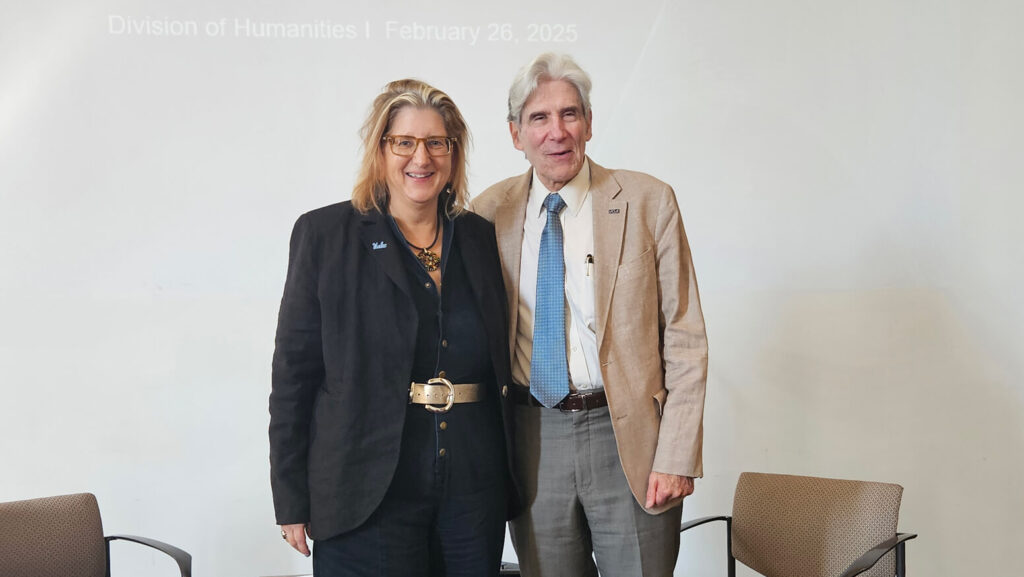UCLA Humanities Listening Exercise
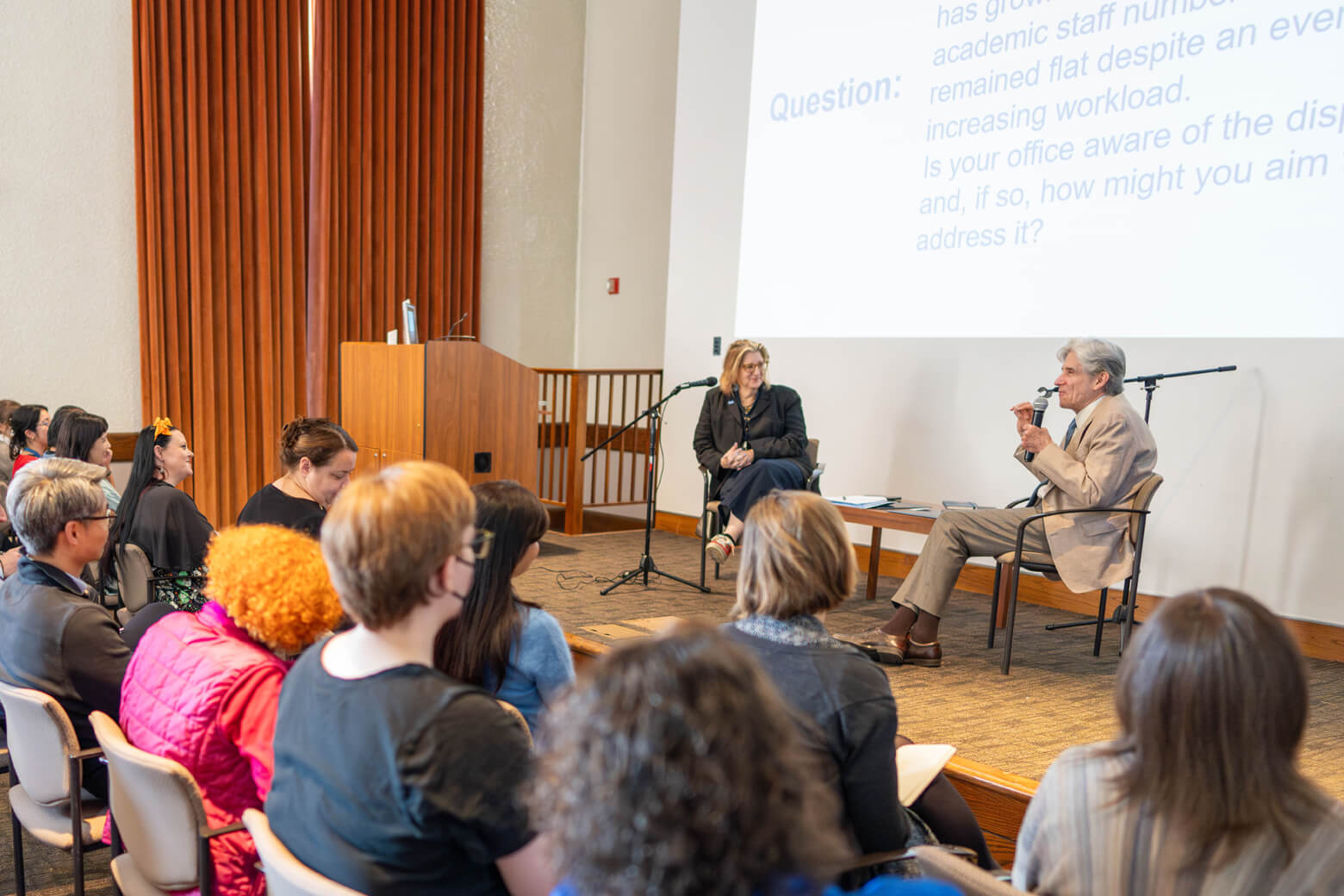
Attendees at the chancellor’s Listening Exercise with UCLA College’s Humanities Division on February 26, 2025 expressed a variety of hopes and aspirations for the future of the university.
One speaker emphasized the importance of academic freedom and faculty governance, and asked the chancellor to affirm these values in his inaugural address. Concerns were raised about the impact of the protests in the spring of 2024 and the need to rebuild trust. Attendees also discussed the challenges posed by recent federal policy changes, which some felt threatened the core mission of UCLA, particularly regarding diversity initiatives, immigration, and research funding. The financial challenges facing UCLA were also a topic of discussion, with speakers highlighting staffing levels and the increased workload for existing staff. Attendees asked about the chancellor’s approach to addressing these complex issues and ensuring that UCLA’s core mission remained protected.
The value of the humanities and their essential role in a public research university like UCLA was another topic of discussion, with speakers emphasizing the importance of research-driven teaching and the potential for the humanities to address pressing societal issues.
Themes
- Role of Universities: There was discussion about what role universities should play in responding to the current political climate, with particular focus on academic freedom, research, and social justice.
- Federal Executive Orders: Speakers expressed concerns about the potential impact of recent executive orders on diversity initiatives and research funding at the university.
- Immigration: Concerns were raised about the potential impact of immigration policies on undocumented students, faculty and staff as well as the need to provide resources to support these individuals. Concerns were also raised about the impact of immigration policies on international students and employees.
- Financial Challenges: Speakers expressed concerns about financial challenges facing the university and division, as well as potential cuts and their impact on academic programs and staff. Discussion touched upon the need to secure adequate funding for research.
- Faculty Governance: The value of faculty governance in maintaining academic freedom and autonomy was emphasized during the discussion. One speaker focused on the central role of faculty governance in shaping university policies and decisions.
- Rebuilding Trust: Speakers discussed the need to rebuild trust and unity within the campus community after last spring’s events.
- Role of the Humanities: Speakers focused on the value and importance of the humanities in a major research university, with some arguing for a stronger emphasis on their role in teaching and research.
- Equity, Diversity, and Inclusion (EDI): The importance of maintaining a diverse and inclusive campus community was discussed.
- Teaching-Focused Faculty: There were discussions about the balance between hiring teaching-focused vs. research-focused faculty members
We want to hear from you!
Your voice is critical in shaping the future of our university.


